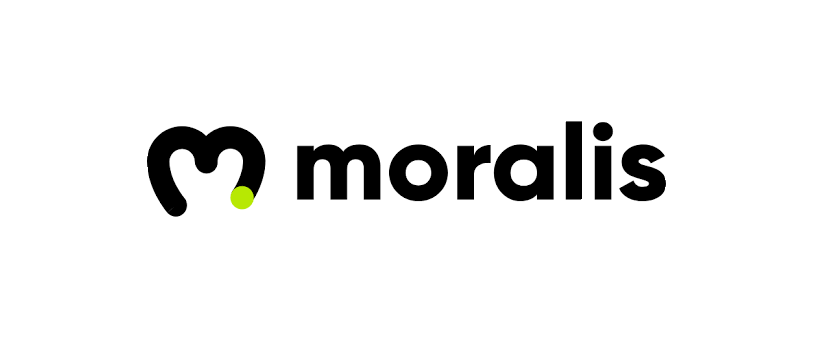Besides Infura, what other API projects are available?
On March 4th, some Venezuelan users suddenly found that they were The MetaMask wallet is blocked, and the wallet service cannot be used normally. One stone stirred up thousands of waves, and for a while people's discussions on MetaMask, wallets, the decentralized world and even the vision of Web3 returned to the center of the market again.
Presumably no user can forget the launch text of MetaMask - "coming soon to the decentralized network". How does an application that is advertised as decentralized ban the services of certain users?
Follow-up MetaMask’s official response explained everyone’s doubts. This disabling was not intentional by MetaMask, but due to the configuration of its node API service provider Infura mistake.
Although MetaMask allows users to modify the default node settings according to their needs, most users will not perform this additional operation. Once the default configuration is wrong, the wrong The configuration will naturally reach the vast majority of users.
About the generation of this error, an overview of Infura, and the "centralization" problem caused by the widespread adoption of infrastructure APIs, you can read from "It’s time to officially face the "centralization" problem brought by Infura" for more details, so I won’t repeat it here.
In the increasingly powerful and popular infrastructure API, it is true that it provides a lot of convenience for development. However, the increasingly widely used API middleware has inadvertently deprived DApp of the opportunity to directly interact with the chain. This has undoubtedly impacted the foundation of the Web3 world in terms of values.
Maybe, we still haven’t found a solution to middleware monopolizing communication on the chain, but at least we can make middleware more decentralized: In addition to Infura, What other projects offer similar services to developers?
QuikNode

There are many problems that need to be solved when building an Ethereum node by yourself, such as security issues, network speed issues, and storage space issues. As a blockchain development platform, QuikNode can directly provide full nodes. solve these problems. It raised $5.3 million in funding led by the co-founders of Reddit and closed a $35 million round led by Tiger Global last October.
QuickNode provides elastic and dedicated nodes for user applications and DApps, that is, application programming interface (API), which can query blockchain data and facilitate the operation of decentralized applications, and Infura Similarly, lowering the barrier to accessing Ethereum data.
However, it should be noted that what QuickNode provides is not a shared public node, but a dedicated node. Only accepts calls from user DApps, which improves blockchain access performance. It currently supports 11 blockchains, including BSC, Bitcoin, Solana, Optimism, Fantom, Terra, Arbitrum, Gnosis, Polygon, Ethereum, and Celo.
Alchemy

Alchemy is a widely used blockchain API. Alchemy's supernode service is used by Ethereum, Polygon, Arbitrum, Optimism, Flow, and Crypto.org. The service provides a wide range of API support, allowing developers to easily obtain multiple functions through a single node, including JSON-RPC support, while providing the powerful reliability required to run world-class applications on the blockchain, Data correctness and resilience.
In the introduction of Alchemy's official website, a brief summary is "use a dedicated distributed Some coordinator services maintain the correctness of real-time data." By replacing it with a concept more familiar to Internet users, Alchemy's vision can be understood as the blockchain version of AWS and Alibaba Cloud.
Just like in Web2, developers renting AWS can avoid server maintenance, operation and maintenance, etc. The troubles of the series are the same. Alchemy also provides developers with a basic decentralized architecture that separates different types of data into special data storage to improve speed and reliability, that is, it can be built on the chain with fewer engineering resources Applications, very similar to Amazon's AWS.
OpenSea co-founder Alex Atallah once praised Alchemy: "Use your own nodes or error-prone Service means wasting valuable engineering time on insignificant issues. Alchemy's reliability, speed, and support are amazing."
In addition to the main service, Alchemy also provides a variety of other services, such as development solutions solution, integrated monitoring dashboard, Web 3.0 push service, etc.
Pocket Network

Pocket Network is also a decentralized API protocol for Web3. Based on Pocket DAO, which guides the long-term development of the protocol, it provides a two-sided market composed of the supply and demand sides of the full node, one end is the application program, and the other end is the provider of the infrastructure running the full node.
Its Token is POKT. Developers can pledge POKT according to their own needs to obtain API services. WPOKT is established to attract other applications to join.
It consists of tens of thousands of distributed nodes to run the network together, there is no centralized server and single point of failure, that is to say, even if a node that provides services for developers fails, other nodes will continue Provide services, thereby providing a solution with high fault tolerance, low cost and flexible API services.
Moralis

Moralis is a Web3 development middleware that provides developers with a scalable back-end infrastructure, allowing users to focus on the front-end of the application. A series of complicated processes of interacting with the chain can be easily completed through Moralis, so as to save development costs and improve the reliability of the interactive functions on the chain.
Similar to other competing products, Moralis also provides developers with functions such as on-chain alert push and smart contract monitoring. Currently, Moralis supports
Multiple networks such as Ethereum, BSC, Polygon, Solana and Elrond. Developers can quickly develop cross-chain DApps based on Moralis.
In addition, Moralis provides other great tools for general DApp development. Some examples include native support for IPFS, cross-chain compatibility, and great support for developers. The Moralis blog also has an excellent guide for you to review and better understand the possibilities for Moralis users.
Currently, SuperFarm, 1inch, Chainlink, utrust, Covalent and other products have been connected to Moralis services.
Bware Labs

Bware Labs is a distributed API infrastructure start-up company. It is building a multi-chain subscription-based API platform, providing an Interface that allows businesses and developers to perform data requests to multiple integrated blockchains.
In the beginning, all infrastructure needs will be provided by Bware Labs' own servers, which shows that this can fully understand the needs of partners and also adjust the infrastructure before accepting third-party node providers. However, when there are enough third-party node providers joining, most of its own nodes will exit, thus transforming into a monitoring role.
Bware Labs disclosed on February 23 that it had completed a $600 financing round. Most of its team members are former Ankr developers, some of whom have also worked at Google.
Its Token, referred to as BWR, can be used to entrust node providers from the platform to earn profits, pledge, participate in protocol governance, and obtain rewards from validators. The distribution data has not yet been disclosed.
Welcome to join the official BlockBeats community:
Telegram Subscription Group: https://t.me/theblockbeats
Telegram Discussion Group: https://t.me/BlockBeats_App
Official Twitter Account: https://twitter.com/BlockBeatsAsia


 Forum
Forum Finance
Finance
 Specials
Specials
 On-chain Eco
On-chain Eco
 Entry
Entry
 Podcasts
Podcasts
 Activities
Activities
 OPRR
OPRR








